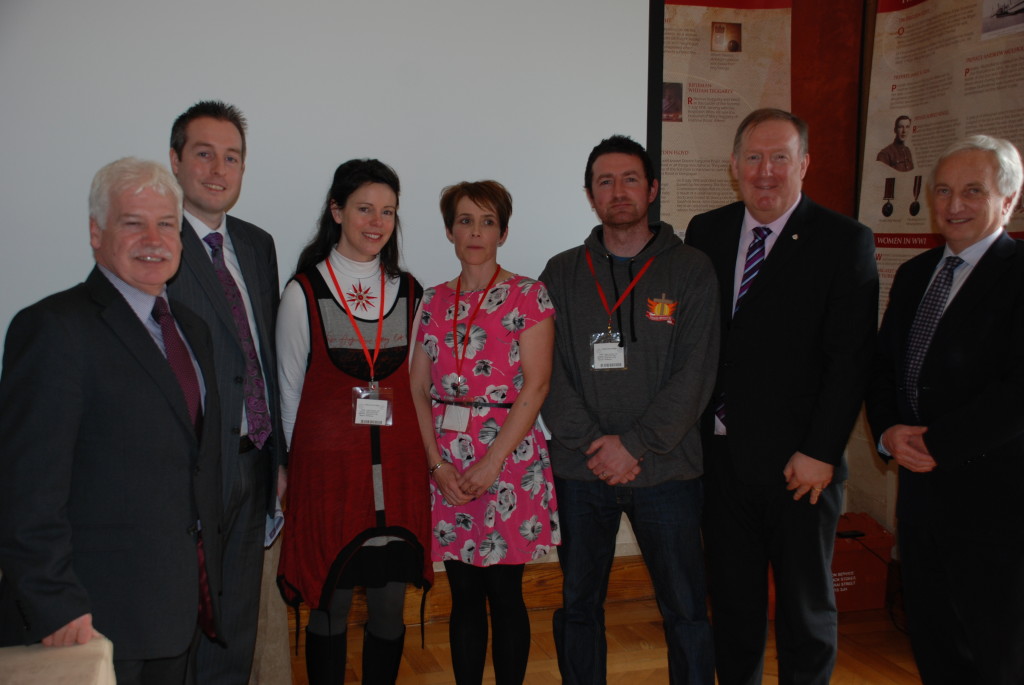
By Susan Gately - 01 March, 2014
 The Chair of the Justice Committee of Northern Ireland’s Assembly has called on people to be in touch with their clergy and church leaders to ensure that they speak with a united voice in opposing abortion.
The Chair of the Justice Committee of Northern Ireland’s Assembly has called on people to be in touch with their clergy and church leaders to ensure that they speak with a united voice in opposing abortion.
Mr Paul Givan MLA, a member of the DUP, said no “political or religious boundary should ever get in the way of being the voice for unborn children in Northern Ireland. This is an issue that crosses the divide.”
Mr Givan was speaking at a conference held in Stormont earlier this week entitled ‘Every Life Matters’.
Sponsored by the, All Party Pro-Life Group (APPLG) of the Northern Ireland Assembly, the conference provided a platform for parents whose children had been diagnosed with terminal conditions, to talk about their individual experiences and to encourage better provision of perinatal hospice care.
Introducing the conference, the Chairman of the APPLG, Pat Ramsey MLA (SDLP), highlighted the current threat of legalisation of abortion.
In December 2013, Justice Minister, David Ford, announced a public consultation to consider whether legislation should be introduced to allow abortion in the case of fatal foetal abnormality.
Mr Ramsey spoke of a media frenzy advocating abortion in such cases and said people must stand firm and protect unborn children in Northern Ireland from such legalisation.
The All Party Pro Life Group formed in 2006, brings together politicians and a united platform of all the pro life groups in Northern Ireland: Evangelical Alliance, the Christian Institute, Care, the Society for the Protection of the Unborn Child, Life, Precious Life, and a new crisis pregnancy centre, Stanton Belfast.
About sixty people attended the conference, which according to Precious Life spokesperson, Bernadette Smythe, was “very productive”.
Speakers at the conference, to which politicians dropped in and out when they could, included Cliona Johnson from Dublin, whose son John Paul lived for just 17 minutes after birth.
She emphasised that modern technology can tell you what your baby “can’t do, but it can’t tell you how much you’ll love your baby”.
She said the care she received at the National Maternity Hospital in Dublin was akin to perinatal hospice care and she was very lucky.
“This care needs to be more standardised in our maternity hospitals. With perinatal hospice care, everyone benefits: the baby, the mother, the family, and society,” she said.
Ryan Gamble’s baby suffered with anecephaly.
“‘Being told at the 20 week scan that ‘there’s no hope’ and ‘most people in your situation will abort’ was the worst moment of my life,” he said.
“My wife and I were distraught. As soon as we got home we googled ‘anencephaly’ and were faced with the worst case scenario, and we did wonder, ‘what if our child would suffer if we don’t abort?’ It was a very difficult position.”
They went ahead with the pregnancy, and Rory was born and lived for just 3 days after birth.
“I have no regrets” said Mr Gamble from Belfast. “If we had aborted, we wouldn’t have had the precious time with our son.’
Derbhille McGill’s baby girl, Clodagh, was diagnosed with trisomy 13 and lived for just 33 days after birth. Her hospital support was poor.
“The consultant referred me to a specialist hospital in Belfast. We never received any support. We just went in for scans and were sent home,” she told the sixty people at the conference.
“When we declined the amniocentesis test, I felt like I was a burden on them. I didn’t feel my baby’s life was valued in that hospital,” she added.
Clodagh spent the 33 days of her life at home in Ballymena with her family. “Every minute of every day is engraved in my heart. Every minute was so precious,” said Ms McGill.
The All Party Pro-Life Group (APPLG) of the Northern Ireland Assembly meets every month.
“We draw up research and keep the politicians up to date,” Bernadette Smyth from Precious Life, told CatholicIreland.net.
She said the conference provided an opportunity to recognise the need for perinatal hospice care in Northern Ireland.
“Parents, when given loving support, freedom from abandonment and careful counsel will choose the alternative of perinatal hospice care, however brief that time may be.”